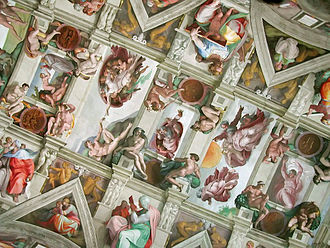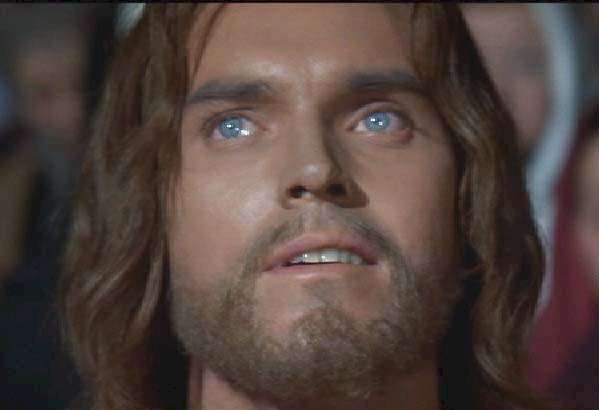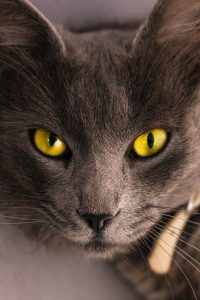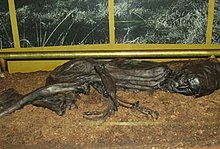He had a morning routine. It began with the radio alarm at 7.30 or 8. As he roused he did a quick health check. ‘How do I feel today?’ It wasn’t so much a physical check, though, these days something always ached; it was an emotional one. ‘Am I in good spirits or is there a problem with my mood or something I should be worried about?’
Either way he rolled out of bed and, after his first morning pee, made his way downstairs. They always had tea in bed in the mornings; there was no need to rush and they didn’t. Into the kitchen, fill the kettle and flick the switch. Take out the tea cosy from the small drawer next to the oven and microwave. Then it was the dishwasher. Switch it off and open the door. Empty the bottom rack first to avoid pots in the top dripping on those below. Plates went in cupboards on the left of the dishwasher, bowls across the kitchen in a cupboard near the hob. The cutlery tray was lifted out but not emptied yet. He usually managed to empty both racks around the time the kettle boiled. Cups went in the top right cupboard and glasses on the other side of the worktop facing the dining table. One glass each and one coffee cup and saucer went on the table. He’d left the mats out ready the night before when he cleared the table.
Then it was all downhill. Teabag in the pot, add hot water and pop the cosy on. Take the milk jug from the fridge, add milk to the cups and pour the tea. Head back upstairs with the tea. Move the glasses of water from the bedside tables and put the tea on the mats. Slide back into bed having lifted the window blind with the best view so they could look out across Cot Valley as they drank.
It wasn’t absolutely formulaic though. Sometimes he emptied the cutlery tray when he went down for the refills and sometimes he left it until the two of them were washed and dressed and ready for breakfast. ‘Living dangerously,’ he thought and smiled.
He didn’t like it if the routine was disrupted though. ‘Why is that?’ he thought, pausing in his careful organising of cups in the top cupboard. ‘Is it just a mechanical process, honed and habituated because it works? It feels like more than that otherwise I wouldn’t care if I varied it. It’s almost a ritual not a habit. What makes something a ritual anyway? Rodents have their rat runs and stick to them. If you want to catch a mouse just put the trap where it goes at roughly the same time every night; the mouse isn’t thinking and you don’t need to. How different are we really? Truth is, it makes us feel secure and safe…a regular, comforting set of actions – we always do this and it always works…well nearly always. Just like not treading on cracks in the pavement which has kept children safe for hundreds of years.’
There were two different sets of cutlery, one with black plastic handles and one all steel. Each had its own cutlery tray and drawer. The black handled ones were used for breakfast and lunch and the others for dinner. He paused just as he began emptying the tray; he always started with the black handled cutlery for no apparent reason. He gazed out of the window and glanced back a thousand years or so as a buzzard circled lazily in the clear blue sky over the valley. ‘The world then was full of dangers from climate to enemies to carnivores. Doing things in the right way in the right sequence was what then kept us alive, unless we happened to be unlucky mice. And the fact that I’m here means that, in every generation since then, an ancestor of mine lived to breed before that trap snapped down on a soft, hopeful neck. Ritual must have developed for a similar purpose, giving the illusion of safety in a frightening world.’
’Maybe,’ he thought, ‘our ancestors had a particularly successful and safe hunt after having got pissed on fermented fruit or mushrooms. It would be natural to think the events were linked and do the same thing next time. Maybe they were so drunk they had a wild dance in the firelight. What was more natural than to decide to try the routine again? Of course, if it didn’t work, if the hunt failed or someone was hurt the link would be broken’. “Unless,” he said quietly to himself, “unless one or more of them saw a chance to gain from it. It would probably be a man who came up with the notion that the dance hadn’t worked because they hadn’t done it properly; only if it were done properly would the hunt go well. And just like that religion was born,” he said as he wiped a fork dry that had been splashed.
The cat considered itself a fairly patient creature but the old man’s constant day-dreaming when he should be doling out cat food was becoming tiresome. It gave a soft yowl and looked at him. “Oh I’m sorry, let me get you something to eat.” He opened a tin of exceptionally nutritious offal with a picture of a delighted cat on its label and scooped a generous helping into the cat’s bowl. The cat responded with a slightly sulky purr – the things he had to put up with! He was a young, grey-black tom, short-haired and lean. He quite liked the couple he lived with, though he found it hard to tolerate being called ‘Cuddles’ when his real name was ‘Algernon the Destroyer of Rodents’. However, he answered to both, or at least, would have done had anyone used his real name.
‘From then on,’ he thought, ‘the ‘priest’ became the only one who could guarantee safety and success. All the others had to do was obey increasingly complex rituals and respect (and reward) the priest. If, even then, the gods didn’t favour the group and necks were still broken on a regular basis, the priest had more than one fall-back position. The obvious one was that someone in the group didn’t believe, was an apostate and, once s/he was found and dealt with, it would all be fine again.’ He pictured the scene as sceptics were named and shamed – a chance for the proto-priests to cement their authority and get rid of troublemakers. ‘Was that what happened to Tollund Man, neatly garrotted and buried? Was he a warning to unbelievers or had thinking moved on to the need for a sacrifice to get the gods on side before the hunt?’ “I suppose the one led to the other,” he said, and the cat looked up from its breakfast as if to check the mental health of an old man talking to himself.
He followed his slow-train of thought, chugging more laboriously than in his younger days down branch-lines and un-manned stations. ‘The second defence, when the only certain thing in life was death no matter what rituals were followed, was quite brilliant. If ritual and prayer didn’t do the trick (though they might be helping so don’t stop practising them) then those closest to the gods came up with the idea; another life in a magical place where there was no more pain and loss. Have faith, keep following the increasingly elaborate rituals devised by ‘holy’ men (and they were men and generally still are) and, whatever your end, they promised a new beginning. All you had to do was believe, have faith, and, oh yes venerate the priests. Any still-living sceptics and unbelievers were done for; be they Cathars, Atheists, Catholics, Protestants, Moslems, Jews, Quakers or anyone else in the wrong place at the wrong time. They may have escaped persecution in all its guises, stoning, burning, torture then burning, and so on, but how could they possibly disprove the afterlife? And what had religions led to? More good than bad? Or…….Weighed in the scales, had faith done more harm than good? Did Wells Cathedral outweigh the inquisition, old men in daft hats and rich vestments, the crusades, the Shoʾah, witch trials, the Reformation, the Counter-Reformation, missionary colonialism, religious police and courts and all the rest?’ “Who knows?” he said quietly.
“And here we are Puss, on a planet we’re well on the way to making uninhabitable, facing ever-increasing episodes of unbearable heat storms, floods, fires and disease, the usual run of biblical pestilence, but it’s o.k. because this life doesn’t count; it’s just a rehearsal for the next one. And I bet in paradise there’ll be enough dosh for everyone to be rich and really astonishingly big department stores for us to spend it in. Can’t wait.”
The cat finished its careful post-prandial washing, systematically licking a paw and then cleaning its whiskers and chin with it. Finally, satisfied with its toilet, it looked thoughtfully at him – a long, cool glance – looked at the worktop he leant on, calculated the effort required and jumped lightly up next to him. He turned smiling and leant his head towards the cat which gently nudged his forehead and gave a soft meow. Then the cat slipped down and headed for the cat-flap in the door. Half way there it turned, gave him a thoughtful glance and said, “You forgot the Sistine Chapel. That should go on your pros list. And you’re confusing humanity’s need to believe in something higher and better than itself with mankind’s (and it is generally a male trait) constant ability to twist and pervert any and every thing to meet what he mistakenly thinks is his own self-interest. I think Gilbert Ryle** called it a category error.”
Startled he looked at the cat, his mouth hanging open. “Thank you,” was all he could think of as a response.
“Don’t mention it,” said the cat. “Try not to overthink things.”
The cat flap clattered. He topped up the cat’s milk and went to pick up the drinks to take upstairs. Then he noticed a knife with a black handle in the wrong drawer. He turned away from the drinks and carefully placed the knife where it belonged. “That’s better,” he said, picked up the drinks and headed up stairs.
In the bedroom, his wife stirred and said, “You’ve been a long time. What have you been doing?”
“Oh nothing, just talking to the cat.”

** In 1924, Ryle was appointed lecturer in philosophy at Christ Church, Oxford. A year later, he became a fellow and tutor at Christ Church, where he remained until 1940.[14]
In the Second World War, Ryle was commissioned in the Welsh Guards. A capable linguist, he was recruited into intelligence work and by the end of the war had been promoted to the rank of Major. After the war he returned to Oxford and was elected Waynflete Professor of Metaphysical Philosophy and Fellow of Magdalen College, Oxford. He published The Concept of Mind in 1949. He was president of the Aristotelian Society from 1945 to 1946, and editor of the philosophical journal Mind from 1947 to 1971. Ryle died on 6 October 1976 at Whitby, North Yorkshire.[14]



